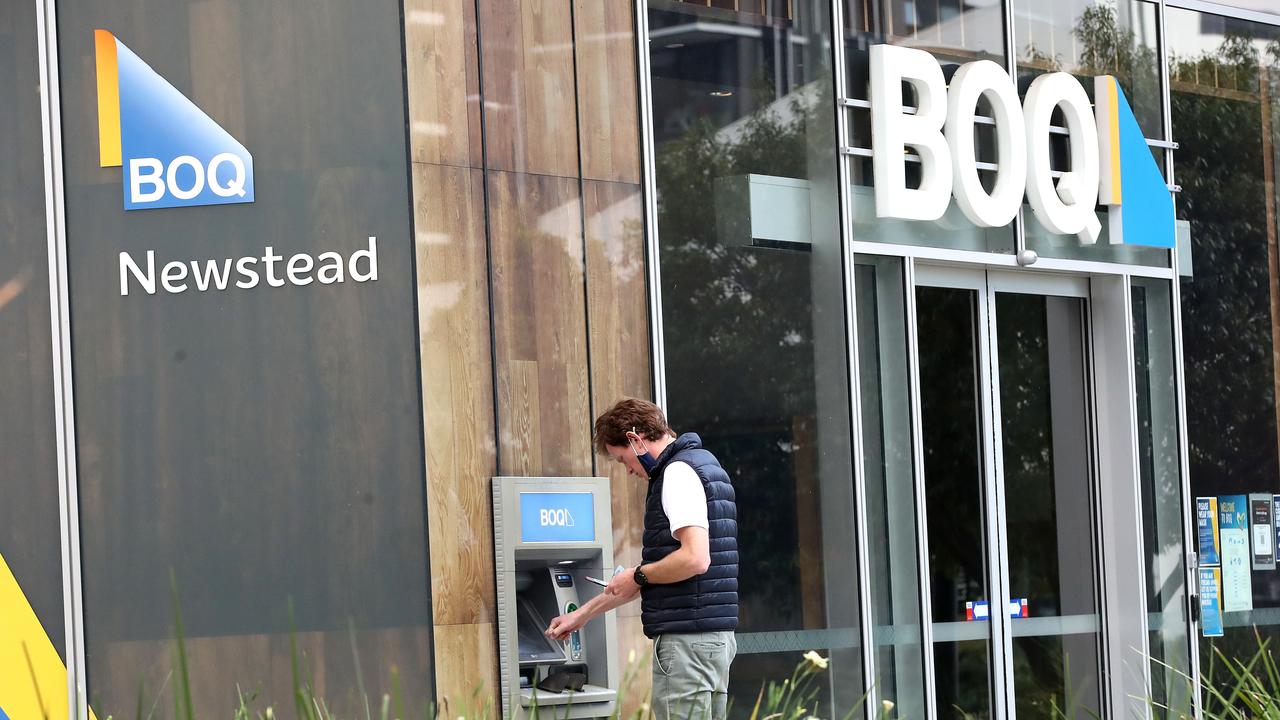Graeme Samuel flags concerns over quality of directors at CBA
Graeme Samuel has raised the prospect that CBA’s directors did not have the skills or values required for the job.

Graeme Samuel, a leading member of the prudential regulator’s investigation into governance and cultural failings at the Commonwealth Bank, has raised the prospect that the lender’s directors did not have the skills or values required for the job.
Speaking at a Senate hearing into the government’s proposed overhaul of superannuation governance, Mr Samuel said the skills and overall quality of non-executive directors on company boards was more important than measurements of independence.
Mr Samuel was recently appointed by the Australian Prudential Regulation Authority, along with regulator and banker John Laker and businesswoman Jillian Broadbent, to conduct an extensive six-month review of CBA’s governance and culture in the wake of a string of scandals.
The review will focus on the bank’s organisational structure and accountability frameworks to see if financial objectives outweighed prudent risk management practices, following explosive allegations it breached anti-money laundering legislation more than 53,000 times.
That came on top of the CommInsure life insurance scandal, where it was found to be using outdated definitions of heart attack to deny claims, the Storm Financial collapse and the wideranging financial planning scandal.
Labor senator Chris Ketter said boards at CBA dominated by a majority of independent directors had not prevented “poor behaviour and consumer outcomes” at the bank and its subsidiaries.
But Mr Samuel said the dependence or independence of directors was not particularly relevant in the CBA case.
“What’s far more relevant, I think, is a whole question that relates to systems and processes, culture, and frankly the quality of directors concerned,” Mr Samuel said.
“I don’t think we can say that it’s because we have independent directors, or despite the fact that we have independent directors that we have concerns. The problems can arise from a whole series of systemic issues or from the capacity of independent directors concerned.”
That senior executives and directors have the requisite skill set is a key area of interest for the prudential regulator in its review.
CBA chairwoman Catherine Livingstone has already begun overhauling senior executive ranks and the board.
She announced the retirement of chief executive Ian Narev just days after anti-money laundering agency Austrac’s claims were filed in the Federal Court, while CBA’s head of wealth management, Annabel Spring, has also flagged her exit following the sale of CommInsure.
Key executives during the rollout of the bank’s smart deposit machines, former chief risk officer Alden Toevs and former chief financial officer David Craig, had left the bank before Austrac’s claims were made public.
Non-executive board directors Harrison Young and Launa Inman will retire after CBA’s annual meeting next month and non-executive director Andrew Mohl, a former CEO of AMP, will step down a year later.
All the bank’s non-executive directors over the past two years were named in a class action against the bank, which was filed in the Federal Court on Monday.
Shares in CBA have fallen 8 per cent since Austrac filed its claims in August, but UBS analyst Jon Mott said investors were being optimistic if they believed there would be no “permanent fallout” for the bank’s earnings from the claims. “For example, we believe the market is yet to fully consider the potential impact of the APRA inquiry into CBA,” Mr Mott said. “The panel members recently appointed by APRA are highly experienced and are likely to undertake a thorough review of CBA.”
He said APRA’s terms of reference, which singled out the bank’s financial targets, would come under close scrutiny.
“Although CBA has never announced its internal financial objectives, we believe it is internally targeting a return on equity of 16-17 per cent, consistent with recent performance,” he said.
Mr Mott asked whether targeting that level of shareholder return in the low interest rate environment and where the cost of capital ran at about 9 per cent was appropriate.
“Few, if any, banks of CBA’s size have been able to achieve returns of this level in the developed world,” he said.
Mr Mott said the inquiry into financial objectives would probably find problems with the high profit targets.
If CBA was required to reduce its targets, “the impact on its valuation could potentially be much more significant”.
“We believe there is much water to pass under the bridge which is likely to prevent CBA outperforming over the next six to 12 months,” he said.



To join the conversation, please log in. Don't have an account? Register
Join the conversation, you are commenting as Logout